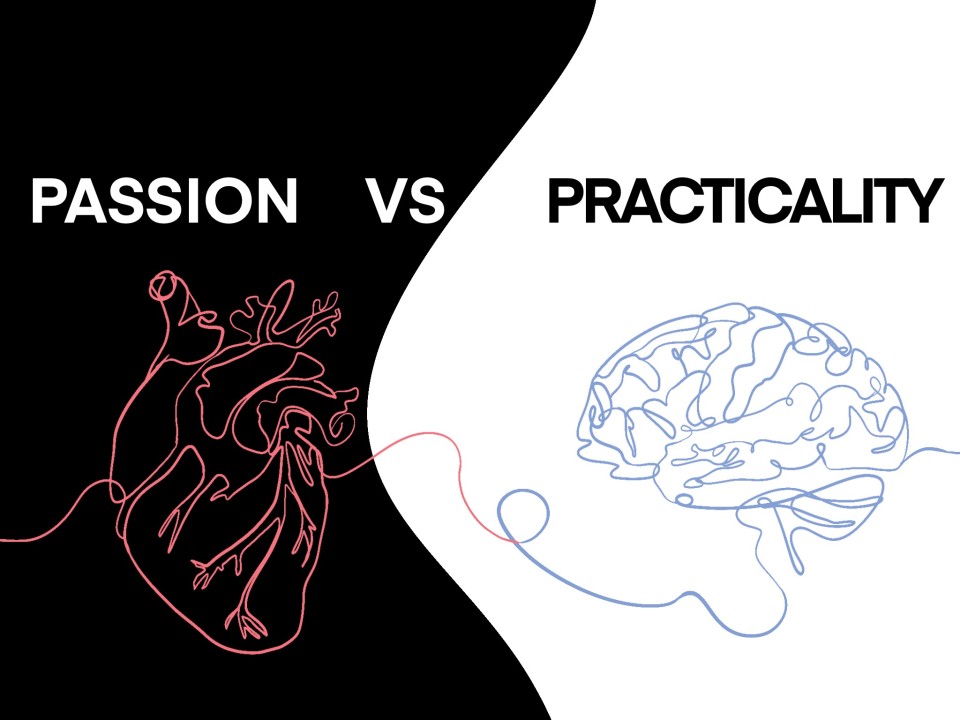Balancing passion and practicality is a crucial skill for any entrepreneur. David Deicke, a successful Australian businessman with a love for luxury sports cars and a background in boxing, exemplifies how passion and practicality can coexist to drive business success. This blog will explore strategies for balancing these two essential elements, drawing on David’s experiences and insights to offer valuable guidance for aspiring entrepreneurs.
Understanding the Importance of Passion

1. Fuel for Motivation: Passion is a powerful motivator. It drives entrepreneurs to work hard, persevere through challenges, and stay committed to their goals. David’s passion for luxury sports cars has been a driving force behind his success in the automotive industry.
2. Enhancing Creativity: Passion sparks creativity and innovation. When entrepreneurs are passionate about their work, they are more likely to come up with unique ideas and solutions. David’s enthusiasm for cars and attention to detail has led to innovative approaches in his car repair centers.
3. Building a Strong Brand: Passionate entrepreneurs often build strong, authentic brands that resonate with customers. David’s genuine love for cars is evident in his business, creating a brand that attracts like-minded enthusiasts and fosters customer loyalty.
4. Improving Customer Relationships: Passion helps entrepreneurs connect with their customers on a deeper level. David’s passion for cars translates into exceptional customer service, as he genuinely cares about the satisfaction and experience of his clients.
The Role of Practicality in Business
1. Ensuring Financial Viability: Practicality ensures that a business remains financially viable. Entrepreneurs need to make sound financial decisions, manage resources effectively, and plan for sustainable growth. David’s practical approach to budgeting and financial management has been key to his business’s stability and success.
2. Risk Management: Practicality involves assessing and mitigating risks. Entrepreneurs must be realistic about potential challenges and develop strategies to address them. David’s practical mindset has helped him navigate the risks inherent in both the automotive and boxing industries.
3. Operational Efficiency: Practicality drives operational efficiency. Streamlining processes, optimizing resources, and implementing effective systems are essential for running a successful business. David’s practical approach to operations ensures that his car repair centers run smoothly and efficiently.
4. Making Data-Driven Decisions: Practicality involves making decisions based on data and evidence rather than emotions. By analyzing market trends, customer feedback, and financial performance, entrepreneurs can make informed choices. David’s reliance on data-driven decisions has helped him stay competitive and responsive to market changes.
Strategies for Balancing Passion and Practicality

1. Align Your Passion with Market Demand: To achieve a balance between passion and practicality, align your passion with market demand. Identify a niche where your interests intersect with customer needs. David’s passion for luxury sports cars aligns with a market of car enthusiasts who seek high-quality services.
2. Set Clear Goals and Priorities: Establish clear, realistic goals that reflect both your passion and practical considerations. Create a roadmap that outlines your vision and the steps needed to achieve it. This helps ensure that your passion is channeled into achievable objectives.
3. Develop a Business Plan: A comprehensive business plan integrates your passion with practical strategies. Include market research, financial projections, and operational plans. David’s business plan for his car repair centers balances his love for cars with a practical approach to growth and sustainability.
4. Monitor and Adjust: Regularly monitor your business performance and be prepared to adjust your strategies as needed. This allows you to stay true to your passion while adapting to practical realities. David continually assesses his business operations to ensure they align with both his vision and market demands.
5. Seek Mentorship and Advice: Mentors and advisors can provide valuable guidance on balancing passion and practicality. Their experience and perspective can help you make informed decisions and avoid common pitfalls. David has benefited from the insights of mentors who have helped him navigate the complexities of entrepreneurship.
6. Maintain Work-Life Balance: Balancing passion and practicality also involves maintaining a healthy work-life balance. Ensure that you allocate time for personal interests and well-being. David prioritizes his physical fitness and personal interests alongside his business commitments, leading to a more balanced and fulfilling life.
7. Embrace Flexibility: Be flexible and open to change. Sometimes, practical considerations may require you to adapt your plans or pivot your business model. David’s willingness to embrace flexibility has allowed him to navigate challenges and seize new opportunities.
Case Studies: Success Stories of Balancing Passion and Practicality
1. Apple Inc.: Steve Jobs’ passion for design and innovation drove Apple’s success, but it was balanced with practical business strategies by his co-founder, Steve Wozniak, and later by CEO Tim Cook. This balance has enabled Apple to create groundbreaking products while maintaining financial stability and operational efficiency.
2. Tesla Motors: Elon Musk’s passion for sustainable energy and electric vehicles is balanced with practical business strategies, such as securing funding, managing production, and scaling operations. This combination has positioned Tesla as a leader in the automotive industry.
3. Patagonia: Yvon Chouinard’s passion for the environment is at the heart of Patagonia’s brand. However, the company’s practical approach to sustainable business practices, supply chain management, and financial performance ensures its long-term success.
Conclusion
Balancing passion and practicality is essential for entrepreneurial success. Passion drives motivation, creativity, and customer engagement, while practicality ensures financial viability, risk management, and operational efficiency. David Deicke’s journey from the boxing ring to the boardroom exemplifies how these elements can coexist harmoniously.
Aspiring entrepreneurs can learn valuable lessons from David’s experiences. By aligning passion with market demand, setting clear goals, developing comprehensive plans, and remaining flexible, entrepreneurs can achieve a balance that fosters both personal fulfillment and business success.
In the ever-evolving world of entrepreneurship, striking the right balance between passion and practicality is a continuous process. Embrace both elements, learn from the experiences of successful entrepreneurs, and stay committed to your vision. With the right balance, you can build a business that not only thrives financially but also brings you immense satisfaction and joy.

